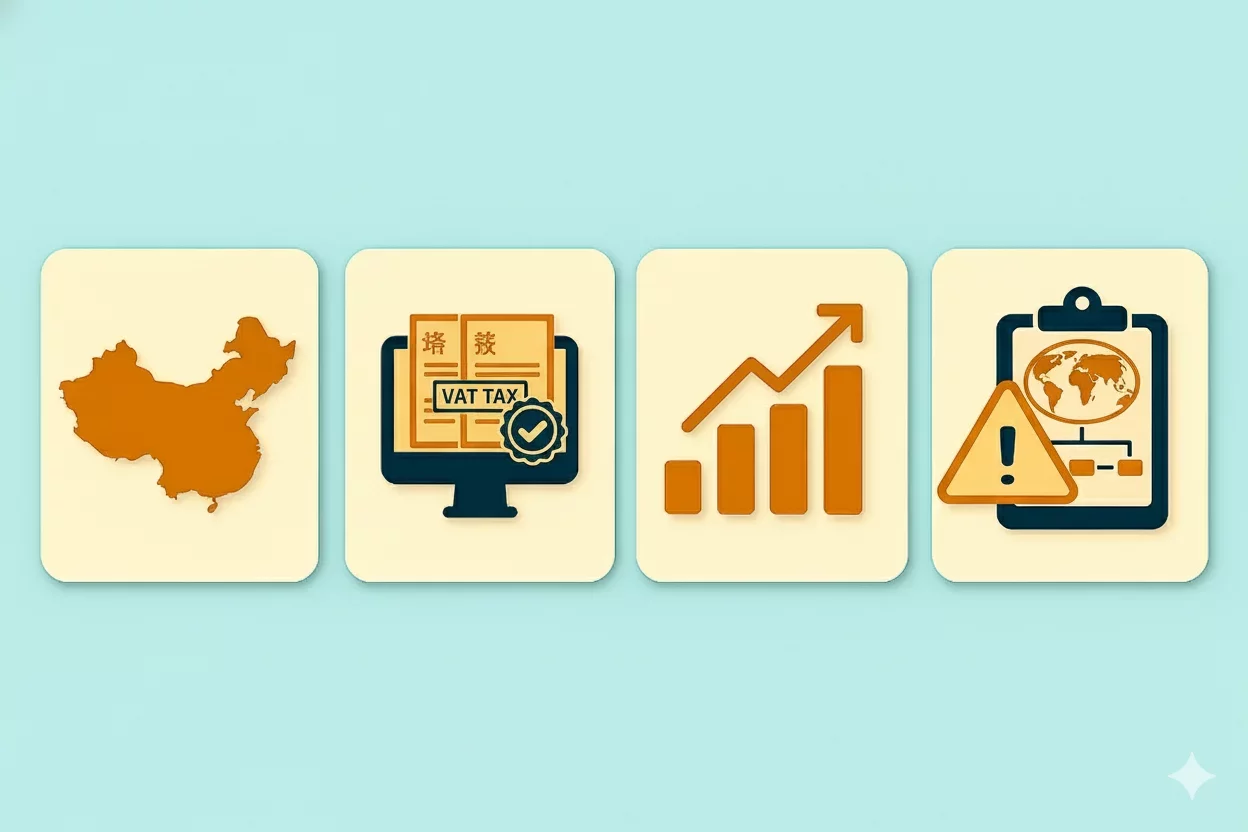China’s VAT Law Reform: Key Changes Effective January 2026

The enactment of the Value Added Tax Law is one of the most crucial moments for the Chinese tax system since the VAT is one of the main contributors to the Chinese tax revenue. The fact that the VAT Law preparation and adoption process started in 2019 testifies to how difficult it was to reach this point. Moreover, the VAT Law, reviewed and adopted at the National Peoples Congress Standing Committee meeting, is China's first.
Historical Overview and Significance of the VAT Law
China has a long history of applying VAT, dating back to 1994. Initially, the VAT was only applied to the supply of goods, whereas the supply of services was subject to Business Tax. Due to the inefficiencies, this dual system was replaced in 2008, when the first major upgrade of China's VAT system was implemented.
From that point onwards, the Chinese government took several necessary steps and even conducted a so-called Business Tax Convergence to VAT (B2V) pilot reform, which resulted in the publication of the First Draft of the VAT Law in 2019. Since the publication of the first draft of the VAT Law, the draft has been changed, and the third draft of the VAT Law has been adopted. The VAT Law will replace the Provisional VAT Regulations on January 1, 2026.
The VAT Law is divided into six chapters, which define tax rates, taxable amounts, exemptions for small businesses, and VAT collection, among other topics.
Under the VAT law, the 13% VAT rate applies to selling goods, providing processing, repair, and maintenance services, leasing tangible movable property, and importing goods; the 9% VAT rate applies to transportation, postal, basic telecommunications, construction, real estate leasing services, selling real estate, transferring land use rights, and selling or importing the listed goods.
The 6% VAT rate also applies to selling services or intangible assets. Exports are subject to a zero VAT rate.
The newly adopted VAT Law stipulates that all taxable persons, either individuals or businesses that sell goods, services, intangible assets, or real estate, must register for VAT and collect and remit VAT.
Nevertheless, until the VAT law comes into force, further clarification and changes are needed and expected. Perhaps the most significant will be for non-resident taxable persons, especially considering the administrative procedures for businesses established outside China.
Conclusion
Adopting the VAT Law is a considerable milestone for China, which has more than 60 million taxable persons. The First VAT Law represents a result of more than 30 years of evolution of the VAT system in China and should contribute to further economic development and growth.
As stated, additional development of VAT law is expected. One of the most crucial regulations, the Detailed Implementation Regulations, should be published in the second half of 2025.
Source: KPMG, PwC, Value Added Tax Law of the People's Republic of China

More News from China
Get real-time updates and developments from around the world, keeping you informed and prepared.
-e9lcpxl5nq.webp)











